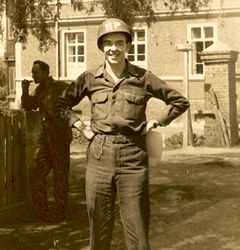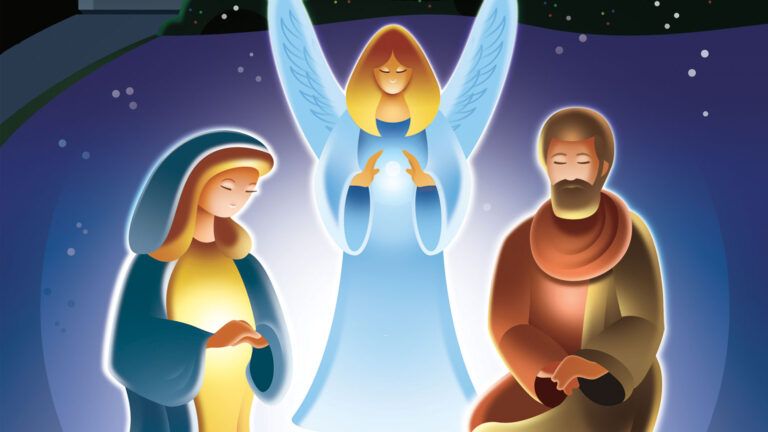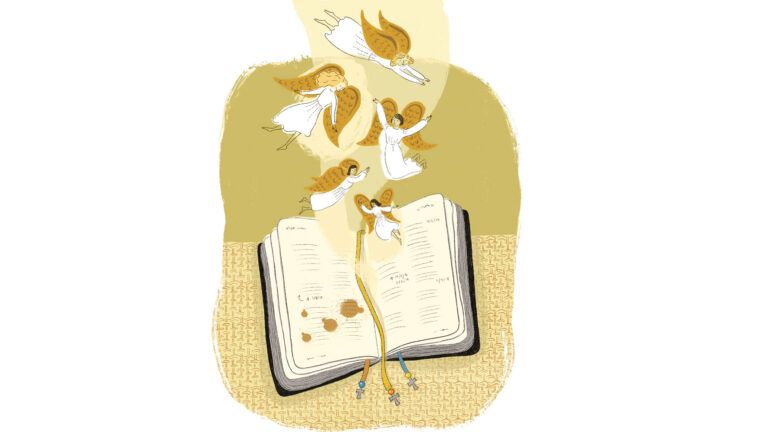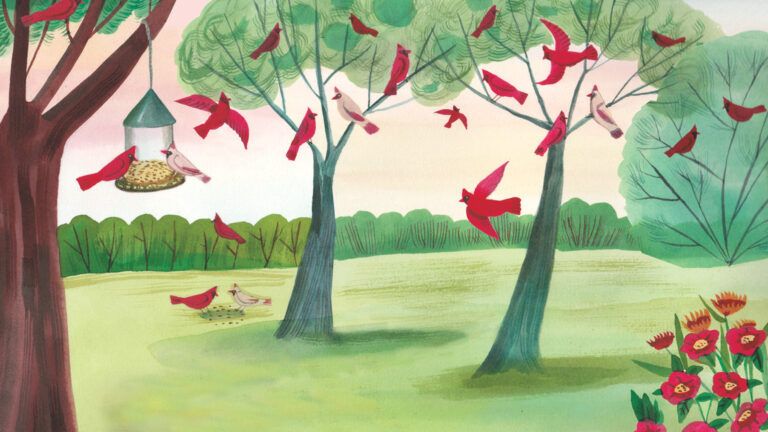One lonely candle lighted the basement room. I tried warming my hands around the tiny flame.
Strange shadows moved across the walls, and I shivered from fear as well as the cold. How could it possibly be Christmas Eve? I’d never felt further from Christmas in my life.
I was 22 that December night in 1944, an MP in the 104th Infantry Division of the US Army. My unit had taken shelter in a bombed-out house in Eschweiler, Germany. We had been fighting for eight days in what came to be known as the Battle of the Bulge, one of the bloodiest events of World War II.
My buddies were out on patrol. I’d stayed behind because I’d been wounded in an explosion three weeks earlier, and I walked with a limp. The medics had patched up my leg, but they couldn’t do anything for my ears. The blast cost me most of my hearing. Now I strained for every sound. Death could sneak up behind me before I knew it.
We’d had nothing but K rations for days, and my stomach ached with hunger. Back in Kansas Mom was preparing Christmas dinner. I longed for my home and family. They don’t even know where I am tonight.
A noise—I whipped around. Someone knocked at the door. I glanced at my watch. Midnight. Who was out there? I moved closer. The last thing I should do was to open the door to enemy soldiers. The knock came again. Louder. Harder. Even more determined.
Soldiers wouldn’t knock, would they? They’d just break in. I picked up my rifle. Dear God, be with me. I opened the door. There were no German soldiers. In the doorway stood a girl, 10 or so, with clear blue eyes and long blonde hair. A man stood beside her.
The candlelight shone on the girl’s face as she gazed up at me. “My name is Hilda,” she said in halting English. “My father and I bring you bread and coal. Merry Christmas!”
The man offered me six coal briquettes and three loaves of black bread. “Thank you” was all I could say before Hilda and her father hurried off into the night. They would have been shot if they’d been caught helping us.
A warm room greeted my buddies when they returned, and we shared the bread like it was manna from heaven. Hilda had brought more than food and warmth. She’d brought Christmas cheer that gave me hope. My family didn’t know where I was, but God did.
I knew I’d always remember Hilda—there was no doubt—and my injury never let me forget the war. My damaged leg still troubled me years later. I had four surgeries in Oklahoma where I lived, all unsuccessful. I was ready to give up hope forever. Then, in 1952, my doctor recommended seeing a neurologist in Chicago. “It’s a chance,” my wife said. I went, reluctantly.
The first day at the hospital, a young orderly came in to clean my room. “Hello,” she said, and I recognized a German accent. She seemed familiar somehow, this girl with long blonde hair. But, of course, I had come in contact with many Germans during the war. She came nearer, to straighten my bedside table. The lamp highlighted her features, and I saw her face. Her clear blue eyes.
“What part of Germany are you from?” I asked. “Near Cologne,” she said. “What town?” I said, knowing the answer. “Eschweiler, sir.”
She told me she and her father had helped American soldiers whenever they could. She had eventually married a GI and had come to the States. Hilda’s face shone, just as it did in the candlelight on that December night in 1944. The night she and her father brought me hope when I had none.
And here she was again. In spite of the war, in spite of my injuries, I had a good life. A full life. Hilda. The angel who twice gave me hope.
Download your free ebook, Angel Sightings: 7 Inspirational Stories About Heavenly Angels and Everyday Angels on Earth.






